|
"Can I vote for you Urs?" A question I get a lot. So who can vote for me. If you are enrolled in South Taranaki on the general roll, then YES you can vote Urs Signer for Taranaki Regional Council! If you are on the Māori roll, if you live in New Plymouth (or Gore, or Antarctica, or Albuquerque), if you are under 18 or if you are a tourist, you cannot vote for me. Sorry! I received my voting envelope today. Did you get yours?
0 Comments
"Are you anti dairy?" As environmental and social justice activists, it is a question we hear a lot. I was asked this last night at the meet the candidates hui in Hāwera. For me, this is not a 'yes' or 'no' question. Let me explain.
My great-grandparents were dairy farmers in the hills of Switzerland. They had 4 - yes, four - cows farming 2ha of land. Up until they retired in the early 1960s, they used no machinery, had no tractor, no truck, no car and no milking machine. They used absolutely no fossil-fuels on their farm. The hay was cut with a scythe. The manure was spread on the paddock by hand. The milk was carried to the creamery every morning on their backs and a woodlot provided all their firewood and timber. That sounds like a pretty idyllic way to care for land and animals. Let's compare this with the dominant Fonterra-model of dairy farming in New Zealand in the 21st century: fertilisers made from fossil-fuel or imported from the Sahara desert; feed imported from Borneo; milk trucked around the region, then turned into powder, 95% of which is exported overseas; herbicides and pesticides sprayed everywhere in an attempt to stop the return of the temperate rainforest; heavy machinery and automation used in a constant quest to bring production costs down (while your debt levels spiral out of control). The problem with the intensive farming model is that it often struggles to meet one of the three triple-bottom lines (economic, social and environmental), let alone two or three. When prices are high on the international commodity market, yes, there is a lot of money to be made. But socially and environmentally, this model is not sustainable. It has led to population-decline and loss of rural community life leading to mental health issues such as depression and anxiety. Environmentally, we know that the waterways across the region are struggling and the emissions from agriculture are through the roof. So it's not that I am opposed to dairy farming - I am opposed to a particular model of production that is pushed by Fonterra. Interestingly, farmers often argue that we can't have the one-size fits all for environmental regulations. However, Fonterra is doing exactly that - pushing a one-size fits all business model that has disastrous impacts, both socially and environmentally. The key to get out of this rut is to adopt regenerative agricultural principles. This includes diversifying our production. Instead of just mining the soil to grow grass, we can grow vegetables in Taranaki such as kūmara, potatoes; we can grow grain, wheat and barley; we can grow all sorts of fruit - did you know we can grow bananas here? Secondly, we need to reduce our stocking rates, protect rivers with much wider riparian margins and also retire land for the native bush to become a carbon sink and increase biodiversity. Three veggie farmers in Ōākura are working full-time on half an acre, selling vegetables to the local community, using regenerative soil-building practices. They live happy lives, go surfing in the afternoons and you see them at parties in the weekends. We can make a living and live happy and meaningful lives by farming small blocks of land which enables us to retire land for native reforestation as a gift to the world and future generations. I grow veggies in South Taranaki that we take to the weekly farmers market. Our family is involved in the Parihaka Community Garden where the produce goes to the marae and local whānau. Every season, we get better at how we can grow food while protecting the soil. The reality is that soon dairy products will be made in a lab without the need of cows. At the same time, the appetite for dairy products is decreasing in the community. Why not grow a few hectares of oats to make oat-milk? The issue with dairy is this: you can diversify and change now, or you will be left behind. That's a bit of a long-winded answer for what appears to be a simple question. So it's not that I am anti diary, it's that I am pro veggies, pro fruit, pro climate action, pro swimmable rivers, pro diversification, pro regenerative agriculture and pro community. If we want to solve the climate crisis, implementing regenerative solutions across the agricultural sector is the key to bringing down our emissions. We need people elected to the Taranaki Regional Council who are keen to support the farming community to create that change. Kia ora. Thank you Save Our Trains NZ for highlighting me as a candidate who supports public transport and climate action! Do you want to see night trains between cities in Aotearoa? Don't just tell Facebook, tell Parliament! They are currently asking for public views on a range of issues related to Inter-regional passenger rail. Submissions close on 6 October. You don't need to be an expert, you just need to have something to say. Head over here to make a submission.
Mōrena! Leaflets for Warea this morning. You should get your voting papers in the mail at the end of this week, or early next week. I am passionate about regenerative agriculture, public transport and swimmable rivers. If you want a candidate that is pushing for climate action, then please vote Urs Signer for Taranaki Regional Council.
South Taranaki residents on the general roll get to elect two people to the Taranaki Regional Council. There are five candidates and I am one of them. I am standing up for social and environmental justice. If you want change, vote Urs Signer for Taranaki Regional Council.
Mōrena! Handing out election flyers in Pātea this morning on my two-wheeler. What a beautiful morning! Have an awesome day - and vote Urs Signer for Taranaki Regional Council.
Would you like to find out more around where I stand on a number of topics like public transport, climate change and the environment? Please check out this website: https://policy.nz/.../taranaki.../candidates/urs-signer A couple of the other Taranaki Regional Council candidates for South Taranaki have also filled out this survey so you can compare the various responses. If you want to support someone who is passionate about the environment and the community, then please vote Urs Signer for Taranaki Regional Council
The Taranaki Regional Council urgently needs progressive and environmental voices at the decision-making table. I am more than ready to step up and be part of a team that takes this region forward. Having worked for many years in the community for environmental and social justice, my top three priorities if elected as a councillor are generating a shift towards local regenerative agriculture, public transport and ensuring all our kids can safely swim in every river across our region.
For too long, the Council has just played catch-up when it comes to looking after the environment. Given the state of our planet, it is time for transformative change. In order to shift away from the dog-eat-dog mentality, we need grassroots and collective solutions for a just, fair and regenerative future. It's not about me, it's about the kaupapa:
- Regenerative Agriculture - Public Transport - Swimmable Rivers - Climate Justice Support progressive candidates at this year's local elections. It's time for change. |
ArchivesCategories |
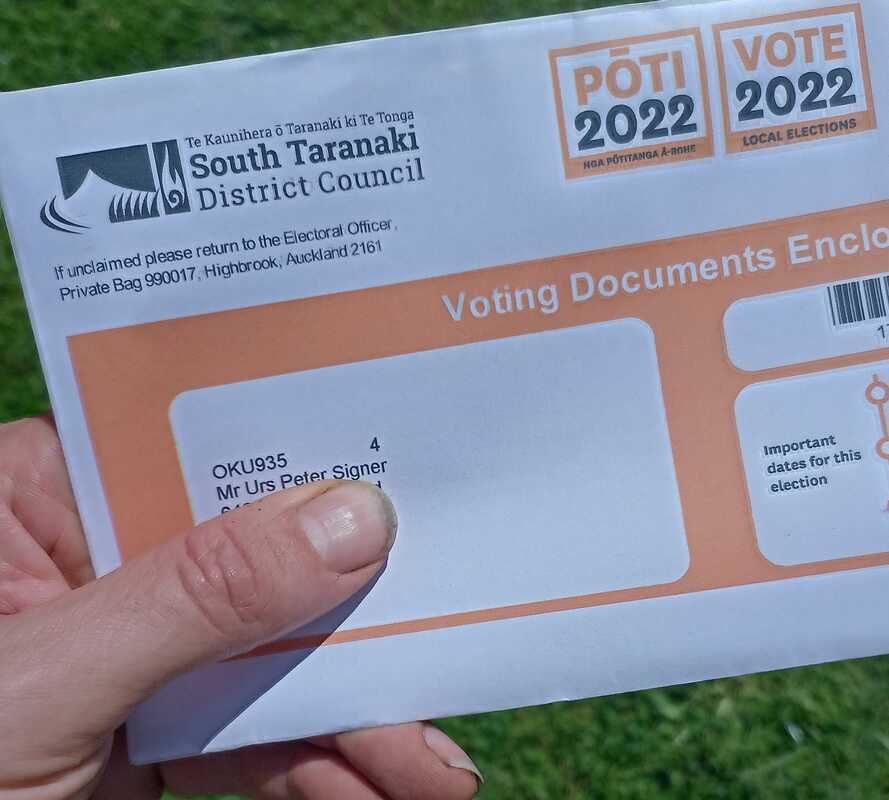
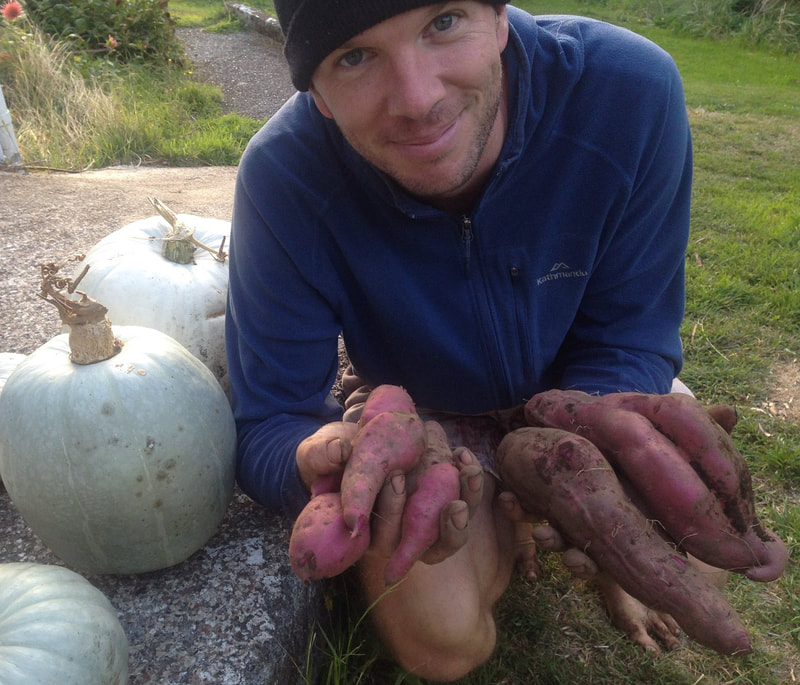
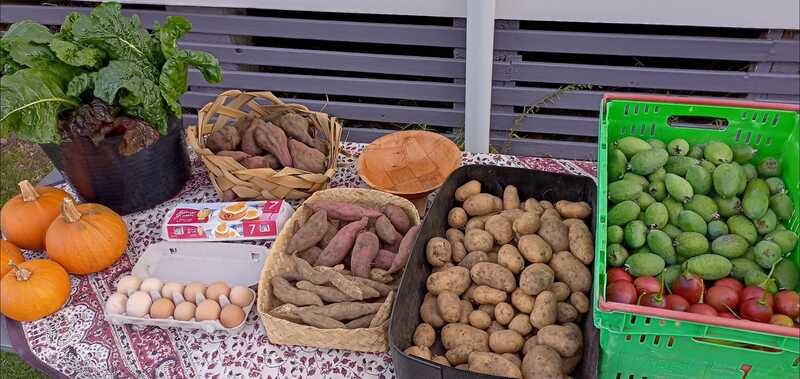
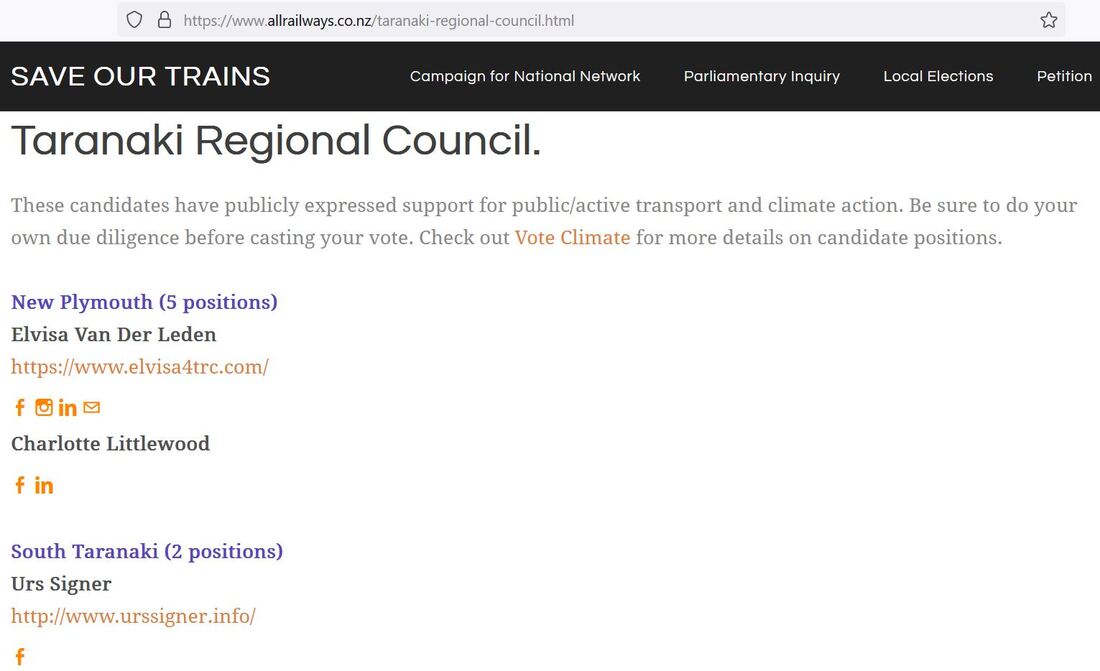
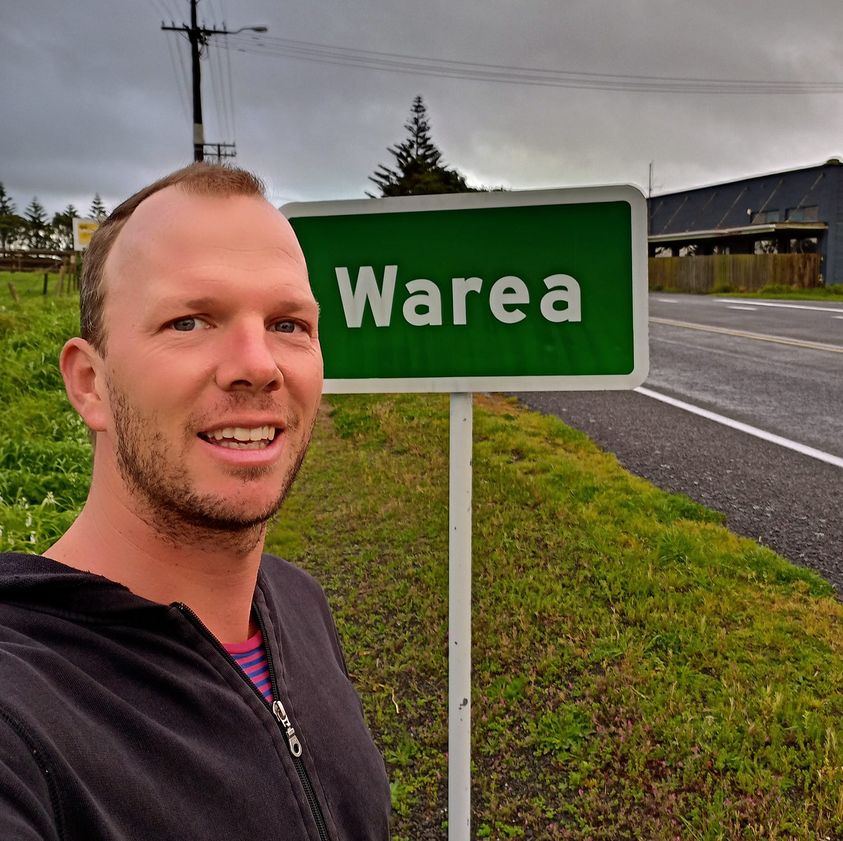
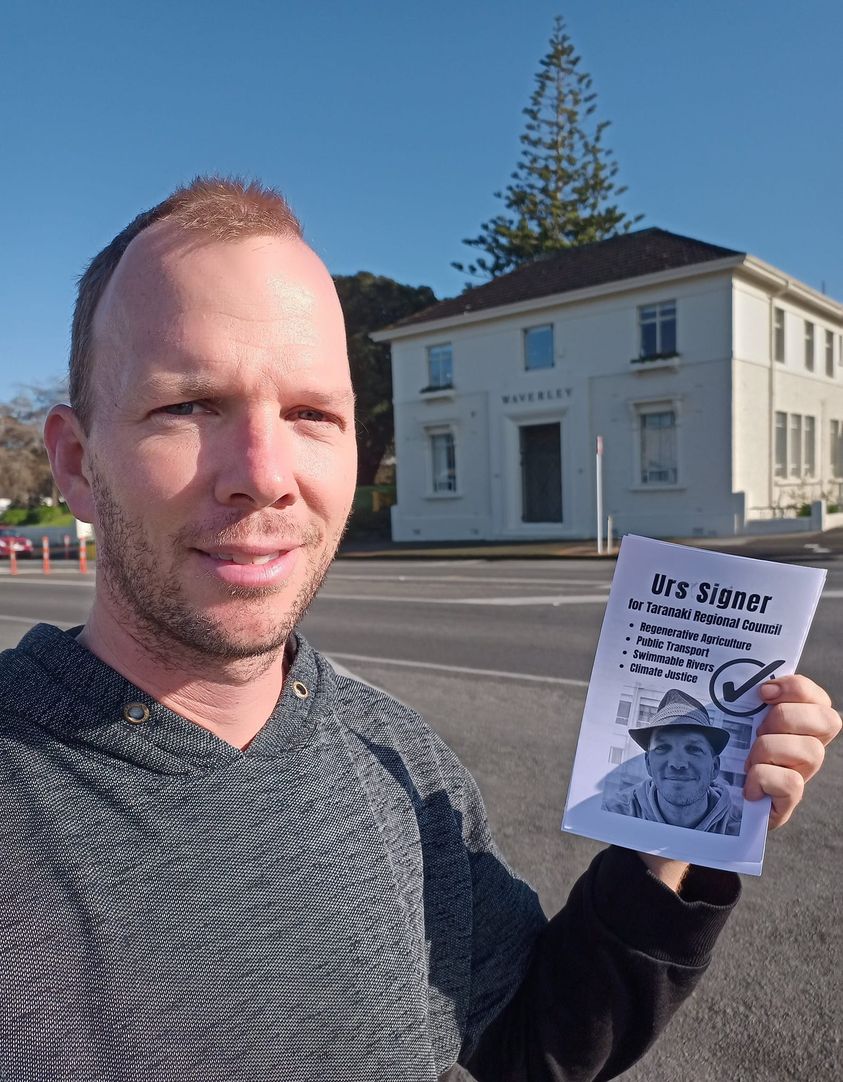
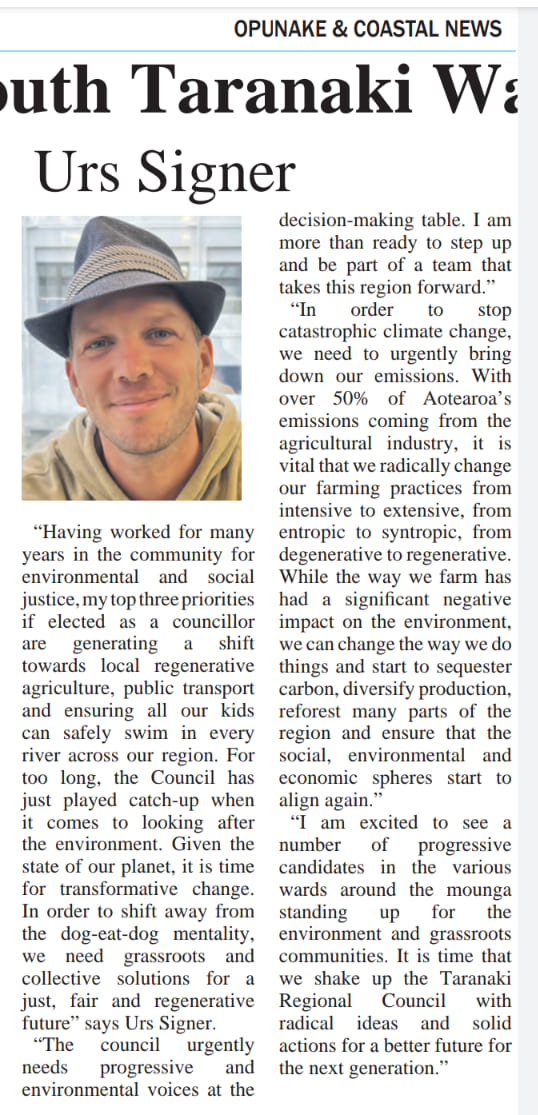
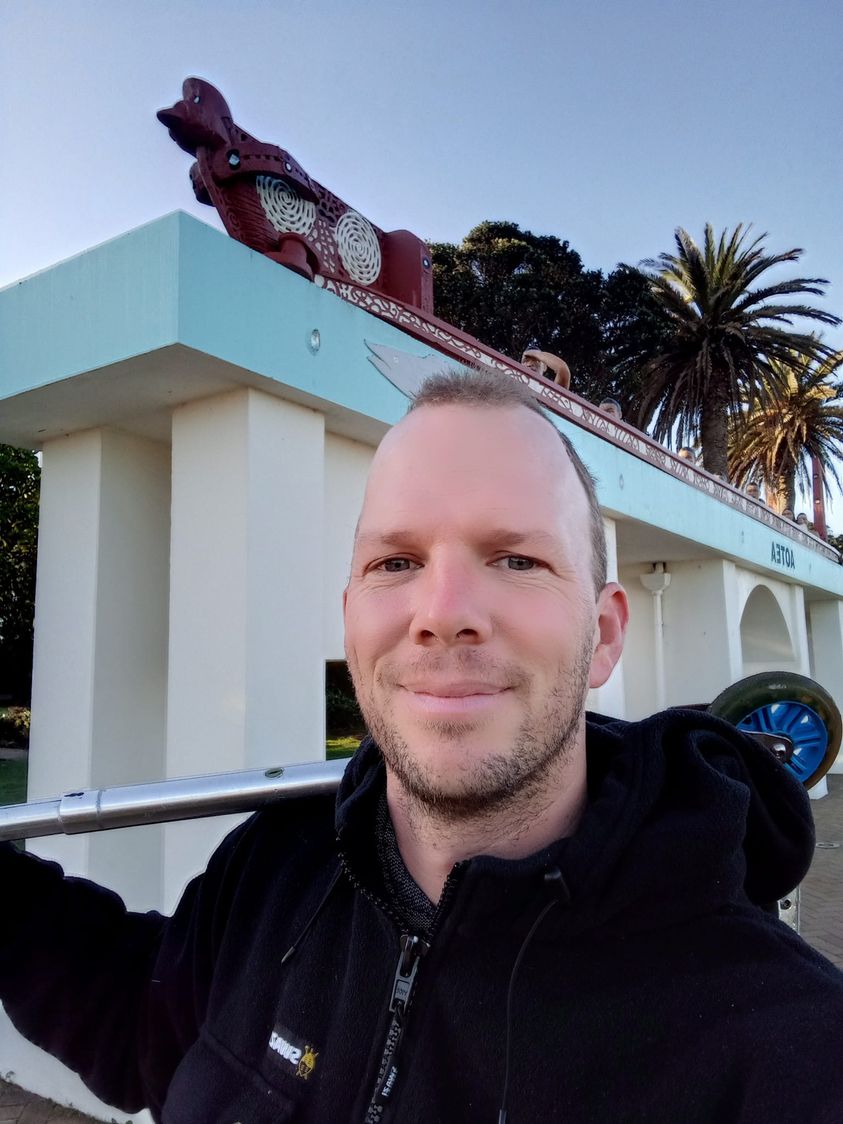
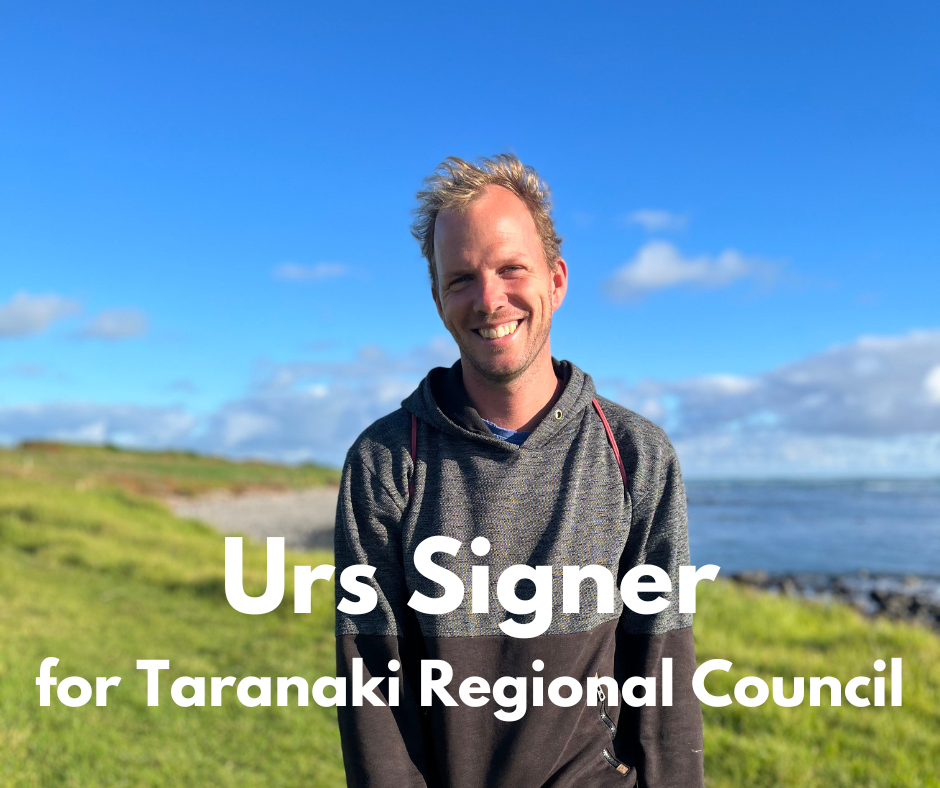
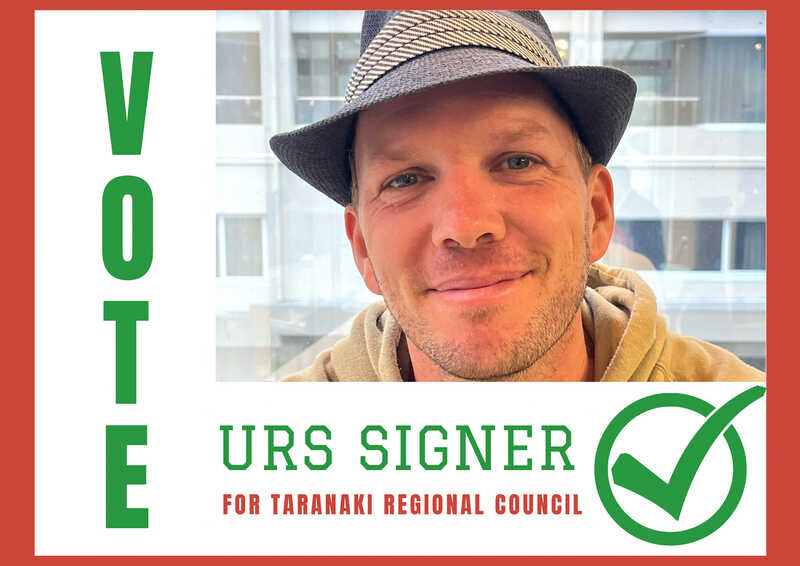
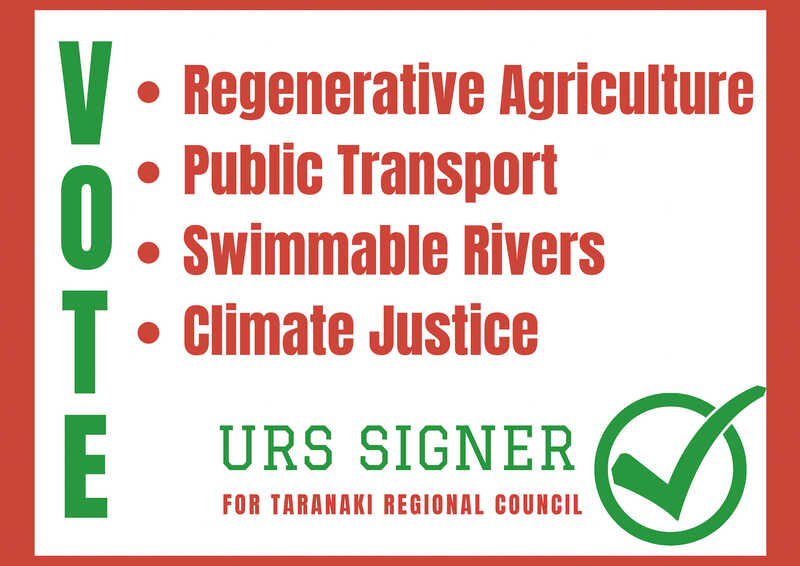
 RSS Feed
RSS Feed
